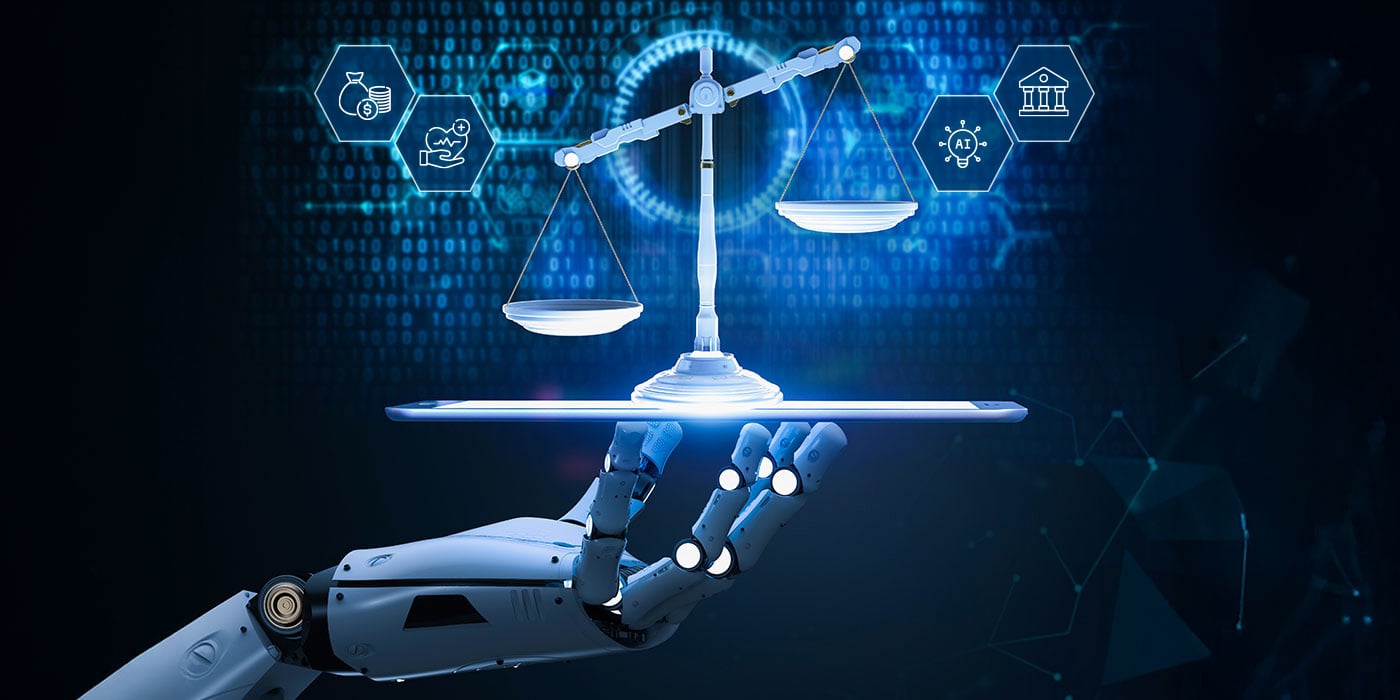Table of Content
TABLE OF CONTENTS

High-volatility sectors like finance, healthcare, and technology face unique and escalating compliance challenges. The increasing complexity and frequency of regulatory updates not only heighten the risk of non-compliance but also drive-up operational costs. These challenges worry the businesses operating in these sectors. They look for ways to find a solution to the problem. Artificial intelligence (AI) offers a transformative solution to streamline compliance, cut costs, and manage regulatory complexities effectively.
This article explores ways businesses in high-volatility sectors can harness AI to streamline compliance processes, reduce expenditures, and effectively manage regulatory complexities.
The growing compliance burden
The increase in the volume and complexity of regulations creates a constant need for compliance, requiring companies to invest significant resources in monitoring, interpretation, and reporting. AI-powered solutions provide a way to manage these burdens more effectively, shifting compliance from a reactive obligation to a proactive, strategic advantage.
The rising cost of compliance in finance, health, and tech sectors
In 2023 alone, global compliance costs in the financial sector reached over $200 billion, driven by the need to keep pace with constantly evolving rules around data protection, risk assessment, and reporting requirements. Healthcare and technology firms face similar challenges, with unique regulations around data security, patient privacy, and digital communications. The costs associated with compliance encompass regulatory fines and penalties, operational expenses from manual processes, and extensive documentation requirements.
.png)
Leveraging AI to drive compliance efficiency
AI's ability to analyze, categorize, and interpret vast amounts of data in real-time is revolutionizing compliance. Key AI technologies that are proving effective include:
- Automation: Reducing repetitive tasks, such as data entry and reporting, enables compliance teams to focus on higher-value activities.
- Natural language processing (NLP): NLP interprets complex regulatory language and translates it into clear, actionable guidance.
- Predictive analytics: AI-powered analytics anticipate compliance needs, enabling proactive adjustments before a regulation becomes enforceable.
- Real-time monitoring: Continuous monitoring and automated alerts help reduce the need for manual oversight, minimizing the risk of human error.
Real-world examples: AI in action in high-compliance sectors
AI has already shown a remarkable impact in specific industries, offering tangible benefits in compliance processes:
- Finance: Leading banks, such as JPMorgan Chase, use AI to automate document reviews, saving an estimated 360,000 hours per year. In anti-money laundering (AML) and fraud detection, AI tools flag high-risk transactions while reducing false positives, enabling compliance teams to focus on real threats.
- Healthcare: AI enhances HIPAA compliance by safeguarding patient data and monitoring access logs for unusual activity. By processing vast volumes of data for patterns, AI systems identify risks proactively, minimizing potential breaches.
- Technology: Data privacy is a critical area for tech companies, especially in managing compliance across various regions with unique data laws. AI-driven compliance systems monitor data flows and flag inconsistencies to maintain adherence to regulations such as GDPR and CCPA.
Cost-saving benefits of AI-powered solutions in compliance
Implementing AI in compliance offers companies a significant return on investment (ROI). Some of the key cost-saving benefits include:
- Labor and operational savings: AI reduces the need for manual tasks, which are often time-intensive and prone to error. This frees up human resources for strategic initiatives, reducing labor costs.
- Reduction in fines and penalties: AI minimizes non-compliance risks by improving accuracy and timeliness, thereby lowering the possibility of costly fines and penalties.
- Strategic cost optimization: AI's real-time monitoring capabilities allow compliance departments to shift from reactive to proactive, avoiding disruptions and improving decision-making.
Overcoming compliance pain points with AI
AI addresses several longstanding compliance pain points:
- Reducing human error: Automated data parsing and reporting decrease the likelihood of costly mistakes that can lead to non-compliance.
- Multilingual compliance: AI's NLP capabilities enable regulatory understanding across multiple languages, which is crucial for multinational organizations.
- Streamlining data analysis: AI-powered systems can parse massive datasets, identifying relevant regulatory information quickly and accurately, thus saving time and resources.
Best practices for implementing AI in compliance
To harness AI's full potential in compliance, companies should adopt a structured implementation approach:
- Building a comprehensive AI-driven compliance program: Define objectives, identify compliance needs, and select the right AI tools tailored to industry requirements.
- Ensuring data privacy and transparency: Compliance programs must prioritize ethical AI practices and secure data storage and access.
- Integration with existing infrastructure: AI solutions should work seamlessly with existing compliance systems, allowing for a smooth transition and immediate benefits.
Key considerations: Data privacy, transparency, and ethical AI use
- Data privacy: Ensure AI systems comply with data protection regulations and safeguard sensitive information.
- Transparency: Maintain transparency in AI decision-making processes to build trust and facilitate auditability.
- Ethical AI use: Implement ethical guidelines to prevent biases and ensure fair and responsible use of AI in compliance activities.
The future of compliance in high-volatility sectors
AI's role in compliance is expected to grow as regulations become increasingly complex. Key trends include:
- Expanded real-time compliance monitoring: AI's continuous tracking capabilities will enable firms to keep up with changes and adapt quickly, reducing the lag in response.
- Transition from compliance-centric to risk-focused strategies: Companies will integrate compliance with broader risk management strategies, allowing them to proactively address potential issues.
- Long-term cost reduction: AI will allow scalable compliance solutions that reduce expenses while improving regulatory adherence.
Steps forward: Preparing for the next wave
To fully harness the benefits of AI in compliance, organizations should:
- Invest in AI technologies: Prioritize investments in AI tools that align with your compliance needs.
- Foster a culture of innovation: Encourage collaboration between compliance teams and technology departments to drive AI adoption.
- Stay informed on regulatory trends: Monitor changes and adapt your AI-driven compliance strategies accordingly.
- Focus on continuous improvement: Regularly evaluate and refine your AI systems to ensure they remain effective and aligned with evolving compliance requirements.
Conclusion
AI offers an effective path to managing compliance complexity and reducing costs for high-volatility sectors. By automating tasks, minimizing errors, and providing real-time insights, AI enables companies to move from a reactive compliance model to a proactive, strategic approach. Embracing AI in compliance today enhances operational efficiency and strengthens a company's ability to innovate while staying aligned with regulatory requirements.
As finance, healthcare, and technology companies face evolving regulations, AI-powered compliance solutions will be crucial for maintaining resilience and a competitive edge. Companies that integrate AI into their compliance frameworks stand to gain from cost savings and the long-term strategic advantage of a streamlined, data-driven compliance process.
Watch our on-demand webinar to discover how businesses can overcome escalating compliance challenges with the power of AI. This webinar provides actionable insights on how AI can help your organization stay ahead, reduce costs, and transform compliance into a proactive tool.

Deepti Soni
Director, Data Science and Analytics
Deepti Soni is a Data Science professional with more than ten years of experience in architecting innovative analytical solutions for strategic business problems.
-2.jpg?width=240&height=83&name=Menu-Banner%20(5)-2.jpg)
.jpg?width=240&height=83&name=Menu-Banner%20(8).jpg)

